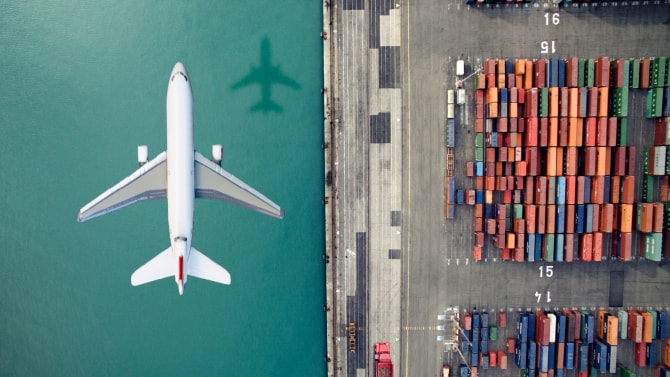VAT & Customs eAlert
As announced in our e-alert on VAT and Customs measures of the Finance Bill for 2022, changes are to be expected in terms of declarations related to intra-EU exchanges of goods (DEB), as of 1st January 2022.
The objective of these changes is to bring France into line with the "EBS (European Business Statistics) Regulation" of the European Parliament and of the Council, dated 27 November 2019 (No. 2019/2152).
This compliance implies the deletion of Article 289 C of the French Tax Code, relating to the declaration of statistical data (customs section of the DEB) and the creation of two separate declarations to replace the DEB : the statistical survey for the customs section, which will no longer come under the CGI, and the recapitulative statement, which falls under Article 289 B of the French Tax Code.
The Customs administration (DGDDI) clarified the practical consequences of these changes during a presentation to professional bodies on 30 September 2021.
It should be noted that these two separate declarations already exist in most of the EU Member States, with the exception of France and Italy, where they are merged into one.
The new reporting obligations envisaged from 1 January 2022
The statistical survey declaration [1]
This declaration is intended to provide data relating to foreign trade and falls under the competence of the Customs administration (DGDDI).
It should be fulfilled and submitted under the same conditions as the current DEB, with new headings added to the existing ones : addition of the heading "country of origin" for shipments, "customer identification number" for the 29 regime (transactions other than specific exempted deliveries and stock transfers such as working and processing operations, BtoC distance sales, sales to the armies …..), and changes to transaction codes.
It should be noted, however, that it will no longer be possible to submit several declarations for the same flow and for the same period, as some companies did in practice in order to reflect distinct sectors of activity, for example.
In addition, nil returns will have to be submitted.
Companies liable for the declaration will receive a postal mail by the end of the year at their registered office, and potentially at the end of each quarter if the administration considers that the company becomes liable for this survey. As an indication, the companies liable to respond to the survey in 2022 should be the same as those subject to the obligation to file a DEB in 2021.
The recapitulative statement [2]
This VAT recapitulative statement was already provided for in Article 289 B of the French Tax Code, but was until now been integrated into the DEB.
In practice, the statement is intended to verify compliance by taxable persons with intra-EU VAT rules. It will be managed by the French tax authorities. Businesses liable for this obligation will have to complete and submit the statement spontaneously on a monthly basis. A new separate section will allow businesses to fill in their statements on the DEBWEB portal. Again, only one report will have to be submitted per period and per company (the obligation to file a nil return still needs to be confirmed).
A system should allow enterprises to obtain a pre-filled summary statement, subject to conditions, in particular that they have previously fulfilled their statistical obligations, should they fall within this obligation.
Other elements of attention
The Customs administration also specifies that the criteria for liability will not be the same for both declarations and will depend on the regime codes and the annual amounts to be declared.
By way of example, , the EUR 460,000 threshold for shipments will only apply to the statistical declaration. The recapitulative statement will be filed from the first euro.
The EUR 460,000 threshold on entry should continue to apply to all intra-Community acquisitions, for which only a statistical survey declaration should be filed.
Finally, it is pointed out that transactions under 29 regime will not be included in the recapitulative statement but only in the statistical survey, if the thresholds are exceeded.
********
Companies performing intra-Community shipments must therefore take this change into account and adapt their internal processes and systems to meet these new obligations. As a reminder, these two declarations are likely to trigger customs and tax controls, as a consequence of the reform of the "quick fixes", which makes the exemption of intra-EU deliveries conditional on the recapitulative statement being properly kept.
The French tax authorities should shortly provide practical details on the changes.
[1] Commonly known in the EU as “intrastat”
[2] Commonly known in the EU as “EC sales listing”
Actualités juridiques et fiscales
Contactez-nous







